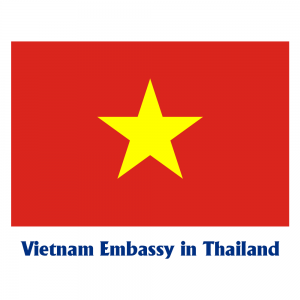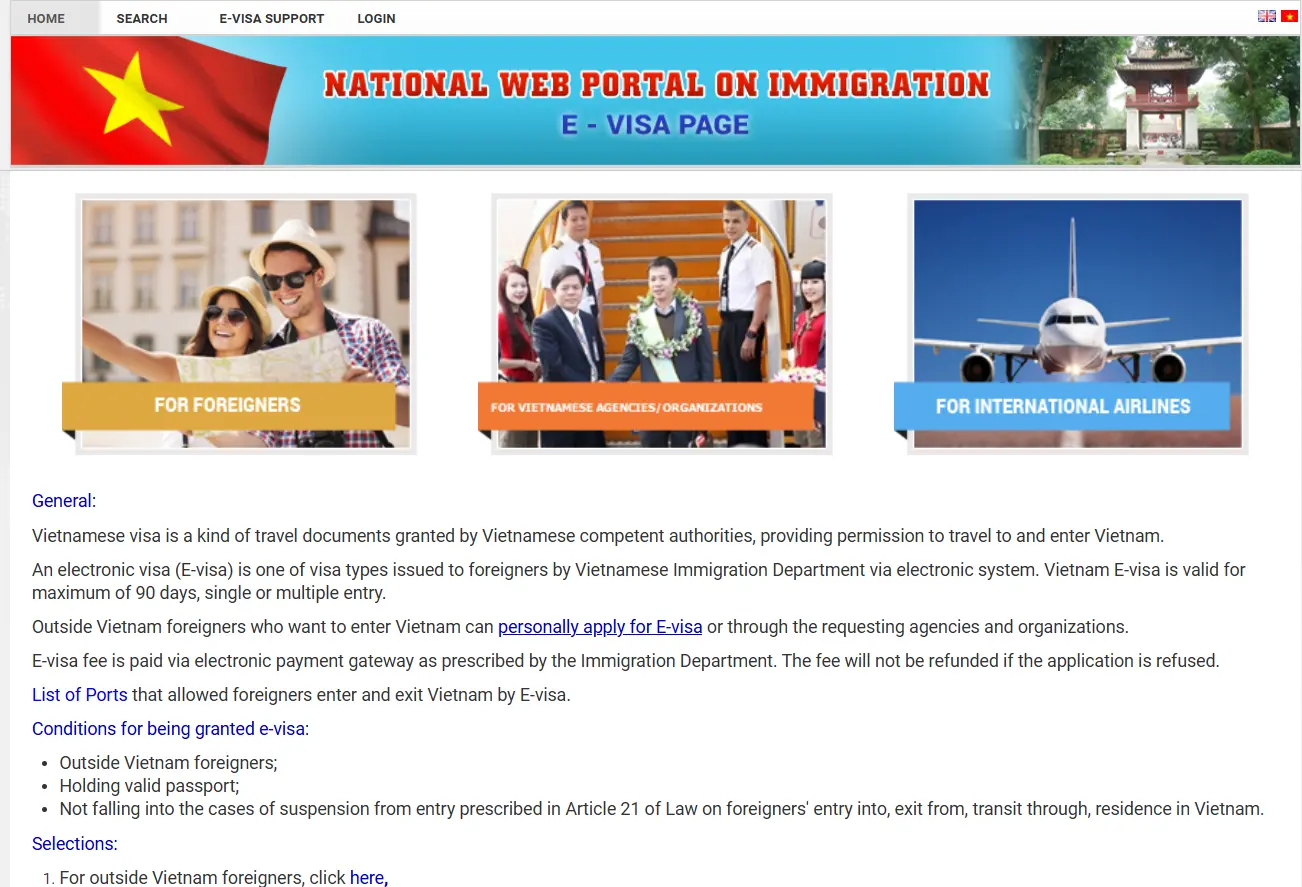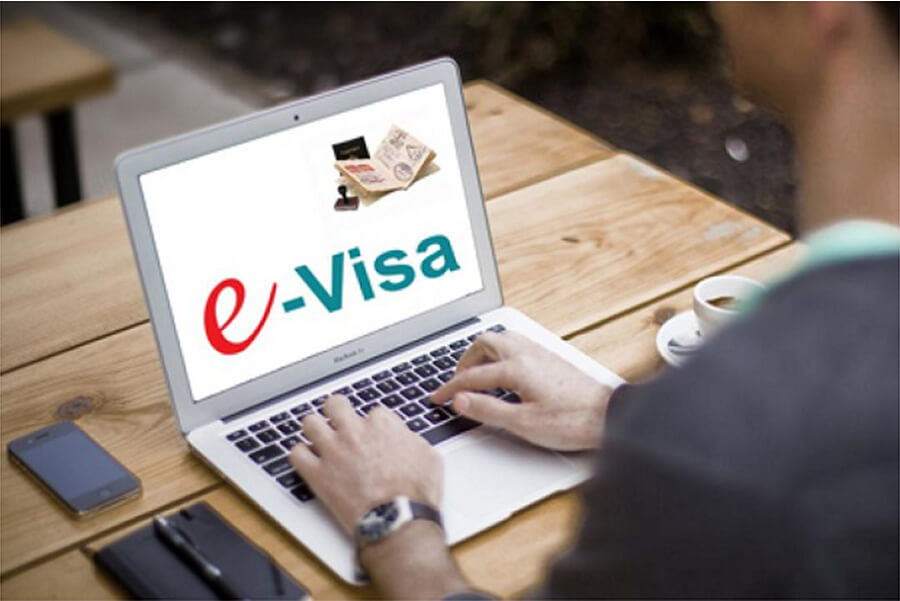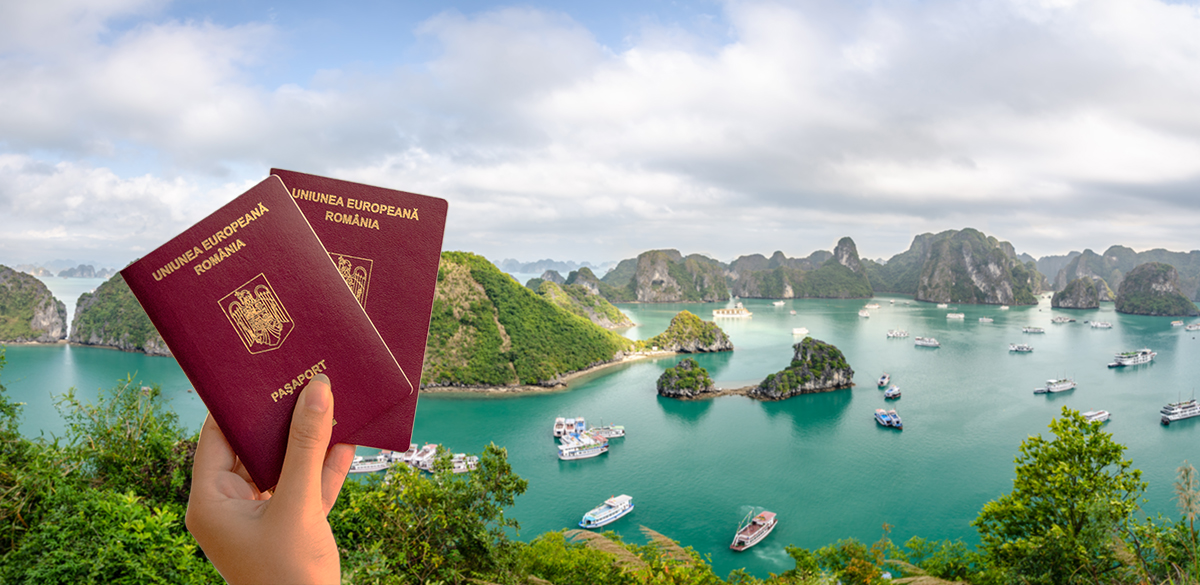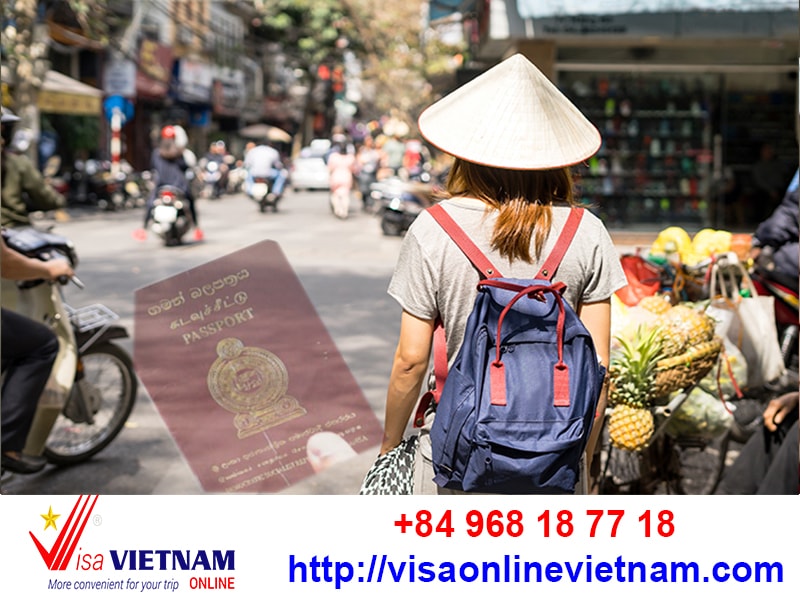
Vietnam Embassy in Thailand Location and Contact Information
Visa Application Process at the Vietnam Embassy in Thailand
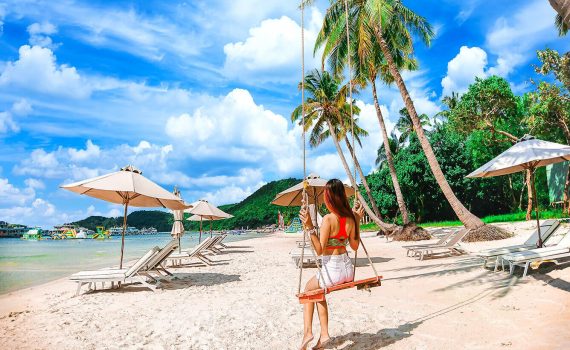
When it comes to applying for a visa to Vietnam from Thailand, the Vietnam Embassy is the primary authority responsible for processing visa applications. The embassy offers different types of visas, including tourist visas, business visas, and student visas. To ensure a smooth visa application process, it is essential to follow these steps:
- Complete the application form: Obtain the visa application form from the official website of the Vietnam Embassy in Thailand or collect it directly from the embassy’s premises. Fill out the form accurately, providing all the required information.
- Gather necessary documents: Prepare the necessary documents for your visa application. These typically include a valid passport, passport-sized photographs, proof of travel arrangements, and relevant supporting documents based on the type of visa applied for.
- Submit your application: Visit the Vietnam Embassy in Thailand during their working hours to submit your visa application. Ensure that you have all the required documents with you. The embassy may also require applicants to appear in person for an interview or additional documentation if necessary.
- Pay the visa fee: Pay the prescribed visa fee at the embassy. The consular fees vary depending on the type of visa and the duration of stay. The embassy accepts payment in Thai Baht or US Dollars, so it is advisable to carry the required cash.
- Wait for visa processing: After submitting your application, the embassy will process your visa request. The processing time may vary, so it is advisable to apply well in advance of your intended travel dates. You can inquire about the status of your application by contacting the embassy directly.
- Collect your visa: Once your visa is approved, you can collect it from the embassy. Make sure to bring your passport and any additional documents required for visa collection.
Summary:
- Complete the application form accurately.
- Gather necessary documents.
- Submit your application at the Vietnam Embassy in Thailand.
- Pay the prescribed visa fee.
- Wait for visa processing and inquire about the status if needed.
- Collect your visa from the embassy.
Consular Services Offered by Vietnam Embassy in Thailand
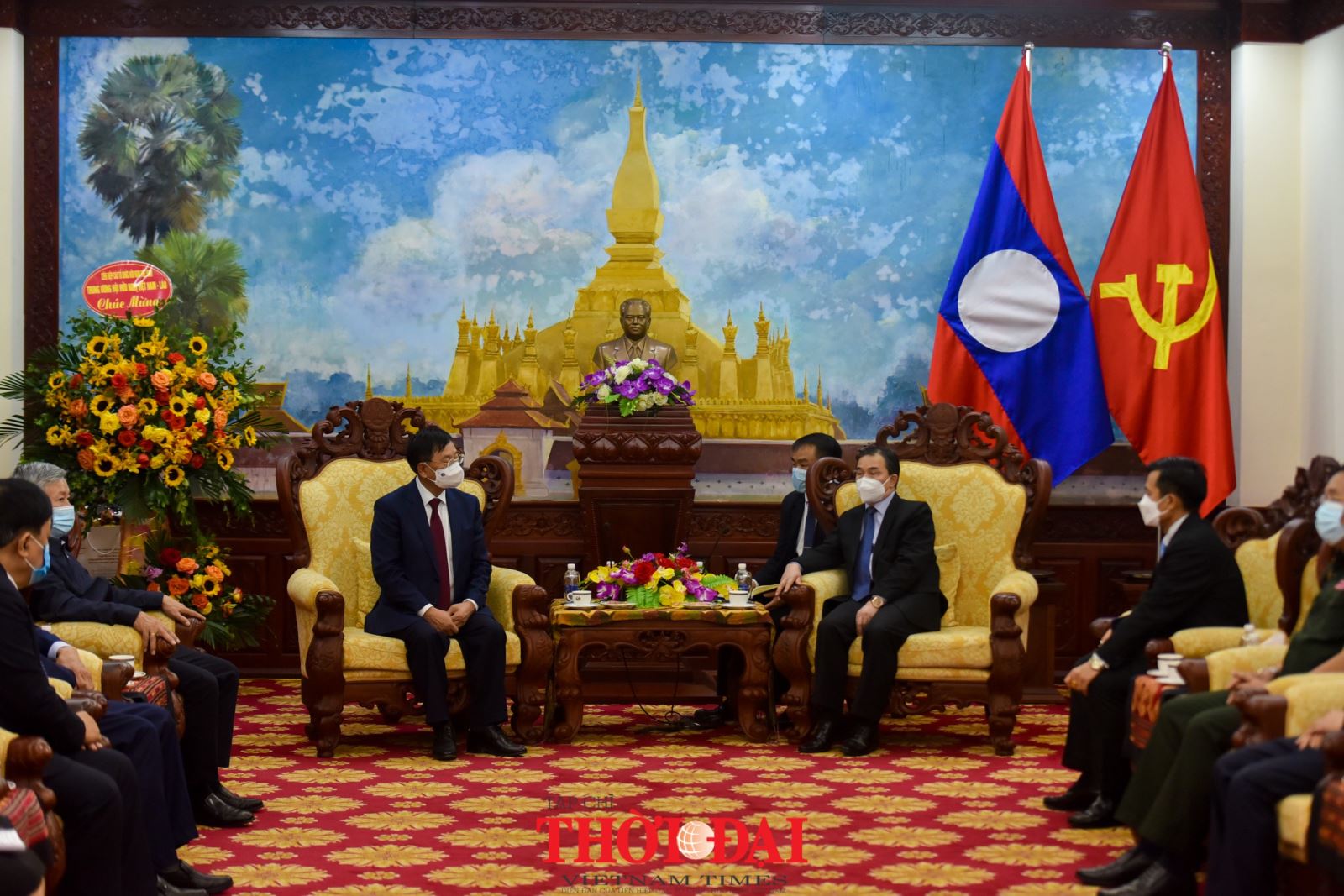
Apart from visa-related services, the Vietnam Embassy in Thailand also provides a range of consular services to Vietnamese citizens and foreigners. These consular services include:
- Passport services: The embassy assists with passport renewal or issuance of new passports for Vietnamese citizens residing in Thailand. This service ensures that Vietnamese nationals have valid travel documents during their stay.
- Document certification: The embassy offers document certification services for various purposes, such as legalizing academic certificates, marriage certificates, birth certificates, and other important documents. This process verifies the authenticity of these documents for use in Vietnam or other countries.
- Legalization services: If you need to legalize documents issued in Thailand to be recognized in Vietnam, the embassy can assist with the legalization process. This service ensures that documents are valid and legally binding within Vietnam.
- Assistance for Vietnamese nationals: The embassy provides assistance and support to Vietnamese nationals facing emergencies, difficulties, or legal issues while in Thailand. They can offer guidance, advice, and facilitate communication with relevant authorities.
- Consular protection: In cases where Vietnamese nationals face issues such as accidents, arrests, or other emergencies, the embassy provides consular protection, ensuring their rights and well-being are safeguarded.
Summary:
- Passport services for Vietnamese citizens.
- Document certification for various purposes.
- Legalization services for Thai documents.
- Assistance and support for Vietnamese nationals.
- Consular protection in emergency situations.
Working Hours of Vietnam Embassy in Thailand

It is important to be aware of the working hours of the Vietnam Embassy in Thailand to plan your visit and ensure that you can avail their services. The embassy’s working hours are as follows:
- Monday to Friday: 8:30 AM to 5:30 PM
- Lunch Break: 12:00 PM to 1:00 PM
Please note that the embassy may observe public holidays in both Vietnam and Thailand, which could affect their working schedule. It is advisable to check the embassy’s official website or contact them directly to confirm their operating hours and any holiday closures.
Summary: The working hours of the Vietnam Embassy in Thailand are from Monday to Friday, 8:30 AM to 5:30 PM, with a lunch break from 12:00 PM to 1:00 PM.
Documents Required for Vietnamese Visa Application at the Embassy in Thailand
When applying for a visa at the Vietnam Embassy in Thailand, certain documents are necessary to support your application. The specific requirements may vary based on the typeof visa you are applying for. Here are the general documents commonly required for a Vietnamese visa application at the embassy:
- Valid passport: Your passport must have a minimum validity of six months beyond your intended stay in Vietnam. It should also have blank pages for visa stamping.
- Completed visa application form: Fill out the visa application form accurately and legibly. Ensure that all the required fields are completed, and provide truthful information.
- Passport-sized photographs: Attach two recent passport-sized photographs to your application form. The photos should meet the specifications outlined by the embassy, such as size, background color, and other requirements.
- Proof of travel arrangements: Provide evidence of your travel plans, such as flight reservations or itinerary, indicating your intended entry and exit dates from Vietnam.
- Supporting documents based on visa type:
- Tourist visa: If you are applying for a tourist visa, you may need to submit hotel bookings, tour itineraries, or invitation letters from Vietnamese tour operators.
- Business visa: For a business visa, you may be required to provide a letter of invitation from a Vietnamese company, a business introduction letter, or other relevant business-related documents.
- Student visa: If you are applying for a student visa, you will need to submit an acceptance letter from a recognized educational institution in Vietnam, along with other educational documents as specified by the embassy.
- Other visa types: Depending on the purpose of your visit, additional supporting documents may be required. For example, if you are visiting family or friends, you may need an invitation letter or proof of relationship.
- Visa fee payment: Pay the prescribed visa fee at the embassy. The consular fees vary based on the visa type, duration of stay, and processing time. Check the embassy’s official website or contact them directly to get updated information on the visa fees.
- Self-addressed prepaid return envelope: Include a self-addressed prepaid envelope for the embassy to return your passport and visa documents by mail if you are not collecting them in person.
It is important to note that the embassy may request additional documents or information based on individual circumstances or specific visa requirements. It is advisable to contact the Vietnam Embassy in Thailand or visit their official website for the most up-to-date and detailed information regarding document requirements for visa applications.
Summary:
- Valid passport with sufficient validity.
- Completed visa application form.
- Passport-sized photographs.
- Proof of travel arrangements.
- Supporting documents based on visa type.
- Visa fee payment.
- Self-addressed prepaid return envelope (if applicable).
Types of Visas Available at Vietnam Embassy in Thailand
The Vietnam Embassy in Thailand offers various types of visas to cater to different purposes of travel. These visas include:
- Tourist visa (DL): The tourist visa is suitable for individuals planning to visit Vietnam for tourism, sightseeing, or visiting friends and family. It allows for a maximum stay of 30 days and can be single-entry or multiple-entry, depending on the traveler’s needs.
- Business visa (DN): The business visa is intended for individuals traveling to Vietnam for business-related activities, such as attending conferences, meetings, or exploring potential investment opportunities. It permits stays of up to 90 days and can be single-entry or multiple-entry.
- Student visa (DH): Students planning to pursue education in Vietnam can apply for a student visa. This category allows for longer stays and is issued to those accepted by recognized educational institutions in Vietnam. The duration of stay depends on the course of study.
- Work visa (LD): For individuals seeking employment opportunities in Vietnam, a work visa is required. This visa type is granted to those who have secured a job offer from a Vietnamese employer or are engaging in work-related activities in the country.
- Transit visa (TT): The transit visa is applicable for individuals passing through Vietnam to reach their final destination. It allows for a brief stay of up to 5 days and requires proof of onward travel.
- Diplomatic and official visas: These visas are issued to diplomats, government officials, or individuals representing official delegations. They are subject to diplomatic protocols and require diplomatic notes or official letters from relevant authorities.
It is important to carefully select the appropriate visa type based on your purpose of travel to ensure compliance with the immigration regulations of Vietnam. For detailed information regarding each visa category, including specific requirements and restrictions, it is recommended to contact the Vietnam Embassy in Thailand or refer to their official website.
Summary:
- Tourist visa for tourism purposes.
- Business visa for business-related activities.
- Student visa for educational purposes.
- Work visa for employment opportunities.
- Transit visa for passing through Vietnam.
- Diplomatic and official visas for diplomats and government officials.
Consular Fees and Payment Methods at Vietnam Embassy in Thailand
When applying for consular services or visas at the Vietnam Embassy in Thailand, certain fees are applicable. The fees vary depending on the type of service or visa requested. Here is an overview of the typical consular fees and accepted payment methods:
- Visa application fees: The visa application fees at the Vietnam Embassy in Thailand depend on the type of visa and duration of stay. The fees are subject to change, so it is advisable to check the embassy’s official website or contact them directly for the current fee structure. The fees can be paid either in Thai Baht or US Dollars.
- Consular service fees: Consular services such as document certification, legalization, passport services, and other related services may also incur additional fees. The fees for these services can vary based on the complexity and nature of the service requested.
- Payment methods: The Vietnam Embassy in Thailand typically accepts payment in cash. It is advisable to carry the exact amount of cash required to pay the fees. The embassy accepts both Thai Baht and US Dollars. Credit card or online payment options may not be available, so it is important to prepare cash beforehand.
- Additional charges: Depending on the circumstances, there may be additional charges for expedited processing, express mail services, or other special requests. These additional charges will be communicated to you by the embassy staff, if applicable.
It is important to note that the consular fees and payment methods can change over time, so it is recommended to verify the current fees and payment options with the Vietnam Embassy in Thailand before submitting your application or availing any consular services.
Summary:
- Visa application fees vary based on the type of visa and duration of stay.
- Consular service fees may apply for additional services.
- Payment is generally accepted in cash (Thai Baht or US Dollars).
- Additional charges may apply for expedited processing or special requests.
Legalization and Certification Services at the Vietnam Embassy in Thailand
The Vietnam Embassy in Thailand provides legalization and certification services for various documents. Legalization involves verifying the authenticity and validity of documents issued in Thailand to ensure their recognition in Vietnam. Here are the key details about the legalization and certification services offered by the embassy:
- Document types: The embassy offers legalization and certification services for a range of documents, including educational certificates, marriage certificates, birth certificates, divorce certificates, power of attorney, and other legal and personal documents.
- Purpose of legalization: The purpose of legalization is to authenticate Thai documents for use in Vietnam. This process ensures that the documents are legally recognized and accepted by Vietnamese authorities, organizations, or institutions.
- Requirements: To legalize a document, you typically need to provide the original document along with its Thai version (if applicable) and a valid passport or identification document. Some documents may require additional supporting documents or translations, depending on the specific requirements of the embassy.
- Legalization process: The process of legalization involves several steps, including document verification, notarization, and endorsement by the embassy. The embassy will review the document’s authenticity and confirm that it meets the required standards before affixing their seal or stamp.
- Fees and processing time: The fees for legalization and certification services vary depending on the document type and complexity. The embassy will inform you of the applicable fees during the application process. The processing time also varies, so it is advisable to inquire about the estimated timeframe when submitting your documents.
- Collecting legalized documents: Once the document has been legalized, you can collect it from the embassy. Make sure to bring the necessary identification and any required payment for pickup.
It is important to note that the legalization and certification services provided by the Vietnam Embassy in Thailand do not involve translation services. If your document requires translation, you may need to arrange for a certified translation service separately.
Summary:
- Legalization and certification services for various documents.
- Purpose is to authenticate Thai documents for use in Vietnam.
- Requirements include original document, Thai version (if applicable), and valid passport/ID.
- Process involves document verification, notarization, and embassy endorsement.
- Fees and processing time vary based on document type and complexity.
- Document collection requires necessary identification.
Traveling from Thailand to Vietnam: Embassy Guidelines and Requirements
Traveling from Thailand to Vietnam requires careful planning and adherence to specific guidelines and requirements. The Vietnam Embassy in Thailand can provide valuable information and assistance to ensure a smooth journey. Here are the essential guidelines and requirements to consider when traveling from Thailand to Vietnam:
- Passport validity: Ensure that your passport has a minimum validity of six months beyond your intended stay in Vietnam. This requirement is mandatory for most foreign visitors, including those traveling from Thailand.
- Visa requirements: Depending on your nationality, you may need to obtain a visa before traveling to Vietnam. Citizens of some countries are eligible for visa exemption or visa-on-arrival facilities. However, if you do require a visa, you can apply for it at the Vietnam Embassy in Thailand or through the online visa application system provided by the Vietnamese government.
- COVID-19 travel restrictions: Due to the ongoing COVID-19 pandemic, travel restrictions and entry requirements may be in place. It is important to stay informed about the latest travel advisories, health protocols, and entry requirements for traveling from Thailand to Vietnam. Check the official websites of the Vietnam Embassy in Thailand and relevant government authorities for updated information.
- Flights and transportation: Plan your flight or transportation arrangements from Thailand to Vietnam. Several airlines operate direct flights between major cities in Thailand, such as Bangkok and Phuket, and various destinations in Vietnam, including Hanoi, Ho Chi Minh City, and Da Nang. Check with airlines for available flights, schedules, and any specific requirements related to COVID-19 testing or vaccination.
- Health and safety measures: Familiarize yourself with the health and safety measures implemented in Vietnam. This includes wearing face masks, practicing good hygiene, maintaining physical distancing, and complying with any additional measures specified by local authorities.
- Travel insurance: It is advisable to have comprehensive travel insurance that covers medical expenses, trip cancellations, and other unforeseen situations. Ensure that your insurance policy provides adequate coverage for your trip to Vietnam.
- Registration with the embassy: While not mandatory, it is recommended to register your travel details with the Vietnam Embassy in Thailand. This allows them to assist you in case of emergencies or provide relevant updates regarding your travel.
- Other considerations: Consider factors such as currency exchange, local customs and culture, local laws and regulations, and any specific requirements or recommendations for the destinations you plan to visit within Vietnam.
It is important to check the most up-to-date guidelines and requirements before your trip, as they can change based on evolving circumstances. The Vietnam Embassy in Thailand and relevant government authorities will provide the most accurate and current information regarding travel from Thailand to Vietnam.
Summary:
- Check passport validity (at least six months beyond the intended stay).
- Determine visa requirements and apply if necessary.
- Stay informed about COVID-19 travel restrictions and entry requirements.
- Plan flights or transportation arrangements.
- Familiarize yourself with health and safety measures in Vietnam.
- Obtain comprehensive travel insurance.
- Consider registering your travel details with the embassy.
- Be aware of currency exchange, local customs and laws, and destination-specific requirements.

